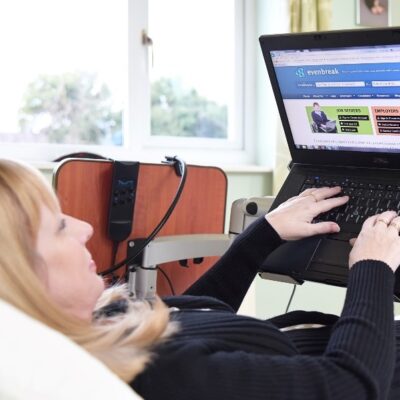- Having personal experience of mental health challenges will give you an advantage.
“It gives you a passion and a purpose and also an authenticity when you are in start-up mode. So it’s got to be an advantage,” said Michelle Morgan, founder of Pjoys.
Michelle had previously founded another social enterprise, Livity, an experience she said had “well and truly worn her out.”
After 16 years she suffered burnout. Anxiety and depression followed, and whilst recovering, she wondered if the pyjamas she was spending a lot of time in could be a conduit for encouraging conversations about mental health.
Similarly, Citizen Coaching, which offers a spectrum of counselling services in Birmingham was partly driven by the founder’s experience.
“My initial interest in it was my own issues, growing up and not being able to calibrate my anger and my feelings very well,” said founder Martin Hogg.
It was because of his own experience and consequent volunteering and training in mental health that led him to spot a gap in the market.
“When I started as a counsellor, or even during my training I just felt that it was something that I could help people with,” said Martin.
Jacqui Dyer, founder of Black Thrive, a think tank that aims to improve the experience of mental health services for the black community, is in the process of starting the journey as a social entrepreneur.
She led the Black Health and Wellbeing consultation for Lambeth Council and is now setting up Black Thrive to offer consultancy for other boroughs and cities.
“I’m somebody with lived experience of mental health challenges, both myself, and also as a carer of siblings with severe mental illness for over three decades.
“My awareness of mental health services and the need for them to improve how they respond to diverse communities has been really sharpened by my interactions in supporting my siblings, which led me to trying to understand how the system works through my own academic engagement,” said Dyer.
2. Crowdsource feedback before you launch
“I was telling people that I was going to launch this pyjama business that was going to make mental health an everyday conversation to keep getting feedback and start building up a bit of a cheerleading base. You know – asking my network and friends and family and colleagues and all of my peer groups,” said Michelle.
“I got the confidence to go down the crowdfunding route because I kept getting really good feedback on the mission, the purpose and the product.”
3. Prove your model works
“It would be very tempting just to jump in and set up a social enterprise about something you’re passionate about but it might be something that people aren’t interested in buying. You have to have proof of concept,” said Martin.
“If you are going to start delivering for a local council or the NHS, you need to prove you can do it. They don’t want you to start the service and then have to give it up after a week because you can’t wait three months for the council to pay you. You’ve got to have a sustainable model.”
4. Be careful about taking on investment
“There is this idea that, in order to be successful, you need to take on big investment, that you need to have people sitting on your board who are going to be able to dictate to you exactly what your business is going to look like and how you’re going to run it, and for many people that works,” said Fintan Connolly, founder of Take Ten, app that helps people manage their stress and anxiety.
“But it doesn’t always work. Particularly if you have a very big social cause you’re trying to look at because you will find a lot of investors aren’t particularly interested in that. They’re interested in one thing – and it’s to get their money back.”
5. Professional credibility can help get your social enterprise up and running
“I was asked because of my history in the world of mental health activism to co-chair the Black Health and Wellbeing Consultation. Halfway through co-chairing that commission, I was elected as a local councillor,” said Jackie Dyer, who is also president of the Mental Health Foundation.
“So I have other experience that adds to the credibility you bring to the space you want to engage in. That then means clients want to engage with because you bring that level of credibility.”
6. Get networking
“You need to go out and start networking. When you start talking to people you will find they will be able to introduce you to other people whether it’s other organisations or charities.
“Once you’re in that network you will find people get to know who you are and what you do and they will refer to you and that’s what happened to me,” said Fintan. Barnardo’s worked with him on a trial for Take Ten when they heard what he was trying to launch.
“They were the first people to come to me and, after a couple of years, I was approached by Camden Council to do a project for 20 of their primary schools. We’ve never actually marketed Take Ten; they’d heard of it through someone else in the social enterprise system. So networking does work.”
7. Think commercially
“If you want to deliver social impact you need to be commercially minded. You need to be financially sustainable to deliver that impact. So don’t be afraid of thinking about the commercials or indeed talking about the commercials. Never hide it because you’re a purpose led business, put a value on the social impact when you’re communicating, put a value on the purpose,” said Michelle.
This event was made possible with the support of players of the People’s Postcode Lottery.
We run regular Profit With Purpose events with the British Library’s Business and IP Centre. If you’d like to come to the next one, sign up to our newsletter to find out when the next one is.



